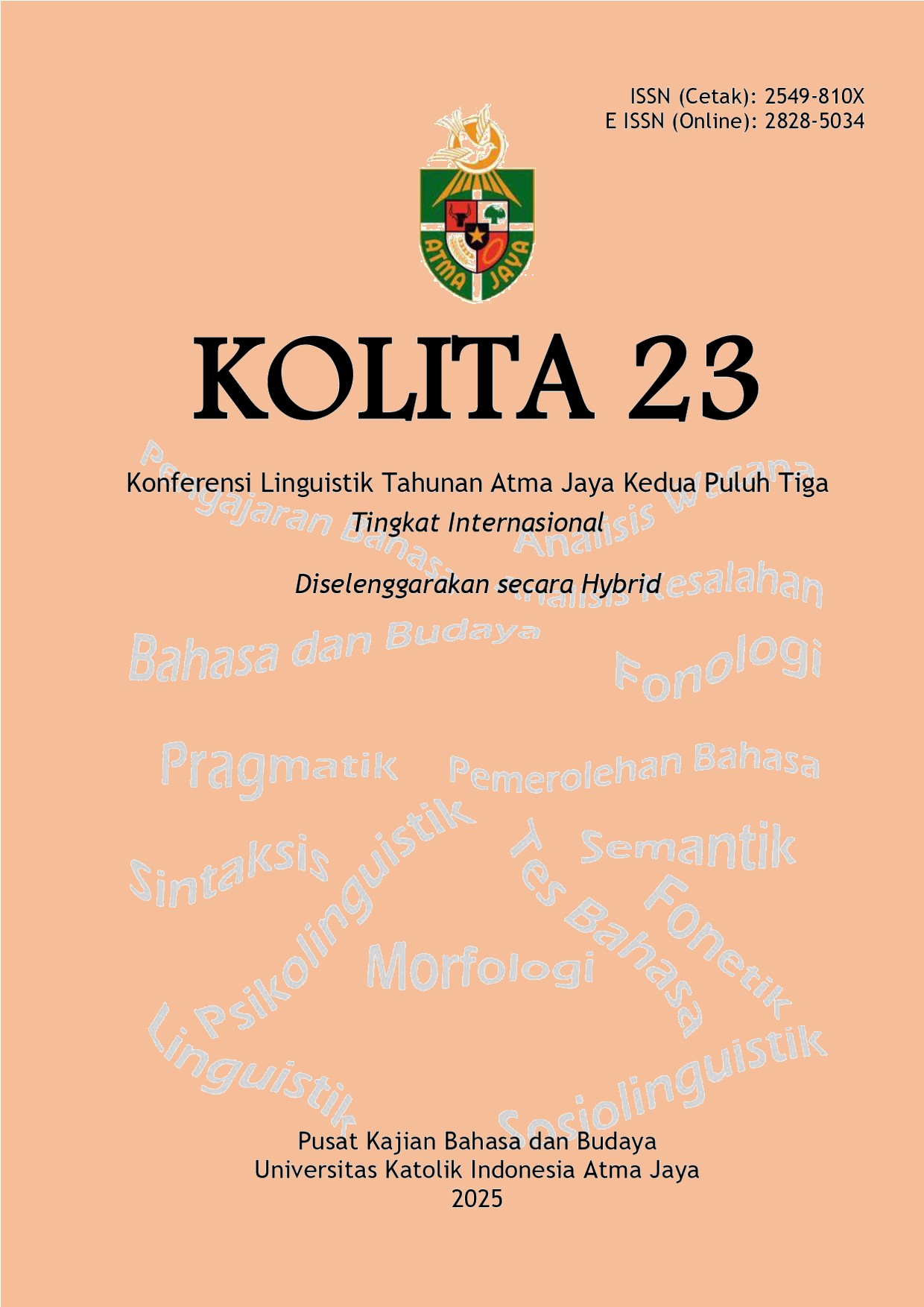ANALYSIS OF IDIOM TRANSLATION STRATEGIES IN YU HUA'S NOVEL FROM MANDARIN TO INDONESIAN
DOI:
https://doi.org/10.25170/kolita.v23i23.7161Kata Kunci:
Idiom Translation, Translation Strategy, Meaning EquivalenceAbstrak
This study analyzes the translation techniques used to preserve the meaning and aesthetic impact of idioms in the Mandarin novel "to live" by Yu Hua. Idioms are a significant component of the Mandarin language and are rooted in historical, philosophical, and social settings. Translating idioms from Mandarin to Indonesian presents challenges due to the need to preserve their meaning, nuances, and cultural background. The study reveals two main approaches: "translation by idioms equivalent" and "paraphase." Factors influencing the choice of translating strategy include cultural equivalency between source and destination languages, transliteration of the translated text, and the general narrative structure of the book. Translators use idiom substitution to maintain the cultural and aesthetic integrity of the text, paragraphs to express desired notions, and sometimes omission to maintain coherence. The study emphasizes the importance of cultural awareness and strategic decision-making in literary translation, especially for complex linguistic elements like idioms






